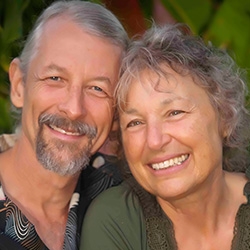

NVC Resources on Feelings
-
Trainer Tip: In our effort to be heard, we often forget to listen. In fact, your need to be heard will not be met completely until you have heard how what you said affects the other person. If we want to ensure that we're heard we can ask the other person to reflect what they heard us say. And we can hear what's going on with them. It is important to remember that a dialogue is not complete until both people have been heard.
-
Trainer Tip: Overwhelmed with all that you want to do? If so, what are you working to change? Is it a behavior or a consciousness? Where were you with this issue when you first decided to create change? And now where are you? Celebrating your progress can encourage you to keep trying. You wouldn’t expect to jump on a treadmill and jog three miles the first time. Don't have the same expectations for your emotional fitness either!
-
Trainer Tip: It's important to design requests to fit specific needs. Otherwise people may do exactly what you ask and still, your needs may not get met. Before you make a request of someone, notice if the strategy you are considering is likely to meet your needs. If not, consider making a different request that may be more satisfying to you.
-
Two NVC trainers went into dangerous, war torn territory to share the skills they found so valuable but end up learning that they need to first apply those skills before those they came to help could receive what they had to offer. Only when the foundation of connection and trust was built could they mediate the conflicts using empathic communication.
-
Discover how self-empathy fosters healthy, supportive relationships with children and others.
-
This explores four types of feedback: destructive, constructive, by demonstration, and dialogue.
-
Trainer Tip: Silent empathy can be a powerful way of contributing to someone's life, giving them the gift of our presence.
-
In this book excerpt, Kathleen and Jared offer a path to reach deeper clarity, distinguishing between revealing ourselves and projection.
-
Anger is a sign that you're resisting what's happening because you perceive an overwhelming threat, not trusting yourself to handle what's happening directly. Vulnerable feelings under anger are usually fear, hurt, or grief. Experiencing and expressing these feelings and connecting them to your needs, gives you access to more skill, insight, compassion, and wisdom. Read on for 3 questions to ask yourself when angry.
-
Jim and Jori share their work integrating Martin Seligman's work on Positive Psychology with Nonviolent Communication in a system they call REMAP, focusing on relationships, engagement, meaning, accomplishment and positivity.

Quick Links
Subscription Preferences
Stay In Touch!
Looking for ways to keep up with NVC Academy news, get special offers, free resources, or words of inspiration? Here are five ways to stay engaged:










